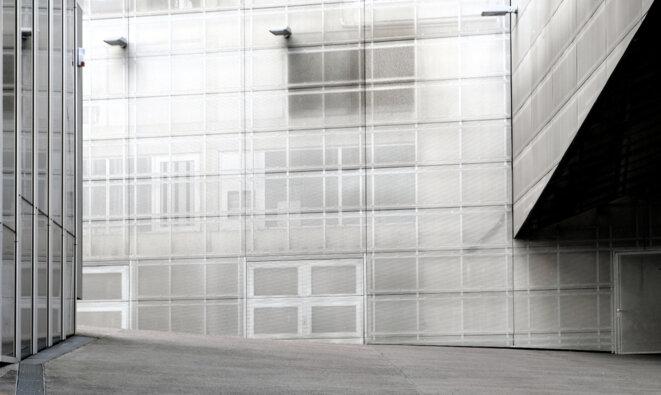
Blog suivi par 8 abonnés
Le blog de Berliner Gazette

À propos du blog
Berliner Gazette (BG) is a nonprofit and nonpartisan team of journalists, researchers, artists, and coders, experimenting with and analyzing emerging cultural and political practices. Since 1999 we have1…
been publishing berlinergazette.de under a Creative Commons License with more than 1,000 contributors. In dialogue with our international network we create annual projects, exploring the issues at hand not only in the form of text series but also conferences and books. Our latest projects include "Black Box East" (2021), "Silent Works" (2020), "More World" (2019), "Ambient Revolts" (2018), "Signals" (2017), "A Field Guide to the Snowden Files" (2017), "Friendly Fire" (2017), "Tacit Futures" (2016), "UN|COMMONS" (2015), "BQV" (2012), and "McDeutsch" (2006).
-
Black Box East: Disruptive Territory Between Deviance and Avantgarde
Starting to destroy the state economy of the GDR in 1989 and making room for capitalist nation (re)building, transformation managers created perfect examples of ideologies such as “creative destruction.” Political scientist Stefan Kausch and discourse analyst Jürgen Link show: by constructing “the East” as an ambivalent normality class, the interests of capital can be served quasi at will. -
Black Box East: Labor and Automation in Bulgarian Car Factories
Robotization is most advanced in the automotive industry. But production is far from being a fully automated process. Human hands and brains are still needed and often recruited where labor is "cheap." For instance, in Bulgaria. Architect Ina Valkanova did research in a factory built to create a single car part: rear lights. -
Black Box East: The Role of “The East” in the West’s Radical Imagination
The potential of the BLACK BOX EAST as a common space of transnational struggles is a matter of ongoing inquiry. Contributing to this cooperative process, social thinker Max Haiven and historian Vijay Prashad discuss about the role of “the East” in the Western radical imagination. An interview. -
Black Box East: What it Means to be Up Against the Far-Right in Croatia
The post-1989 transition from “communism” to capitalism in “the East” is depicted by the Right as the original sin in which treasonous elites sold their country to the perverse technocrats of the EU – a meme that deeply undermines any attempt to build a strong civil society, as the researchers Sanja Bojanić and Marko-Luka Zubčić argue. -
Black Box East: The Politics of Logistics Centers in Czech Bohemia
The logistics centers in Czech Bohemia are located far away from urban centers, warehouses, truck parks, and highway connections. The architects Kateřina Frejlachová and Tadeáš Říha explain that only a bird's-eye view shows that the aim here is to provide a seamless connection to the sales markets of the West. And that taking local people and logistics workers into account is not part of the plan. -
Black Box East: A Delivery
Knowledge was one of the battlefields of the Cold War. So was non-knowledge, read also: obscurantism. After the official end of this war the victorious powers created a new object: the Black Box East. Yet, as political theorist Neda Genova explores, the dividing lines of ideologically constructed dichotomies that the Black Box stands for irretrievably dissolve upon closer inspection. -
Black Box East: Lessons from the Eco-Politics of the USSR
We need to re-evaluate the environmental practices and policies of state socialism, last but least because they had more environmentally beneficial than destructive effects. Hence, rather than dismissing state socialism’s heritage out of hand, we should reclaim it for contemporary eco-socialist ends, as critical geographer and author Salvatore Engel-Di Mauro argues. -
Black Box East: Struggles over Women’s and LGBTQ Rights in Poland
Controversial statements and decisions made by the national-conservative government regarding women’s and LGBTQ rights have led in recent months to even greater divisions in Polish society. More and more people are taking to the streets and demonstrating. Literary scholar Karolina Golimowska reports about the struggles on the ground. -
Black Box East: How Anti-Colonial Rhetorics are Obstructing Decolonial Critique
With the inter-national web of neoliberal entanglements becoming ever more difficult to manage, the resurgent nationalisms’ promise of salvation is “sovereignty”. In “the East”, in Hungary and Poland, for instance, this promise is supported by anti-colonial rhetoric against “foreign powers”, obstructing any critical engagement with coloniality, as Kasia Narkowicz and Zoltán Ginelli argue. -
Black Box East: How Journalism NGOs Hijacked the 'Democratization of Romania'
Since the West is trying to teach democracy to the former Eastern bloc, media and journalism NGOs funded with Western money have become a job generator for white men from the Global North. Meanwhile, the precarious or unpaid jobs are reserved for Eastern Europeans. Stefan Candea, a reporter from Romania, was part of this machine – until he dared to criticize the power relations.
- Page précédente
- 1
- …
- 5
- 6
- 7
- 8
- 9
- Page suivante


